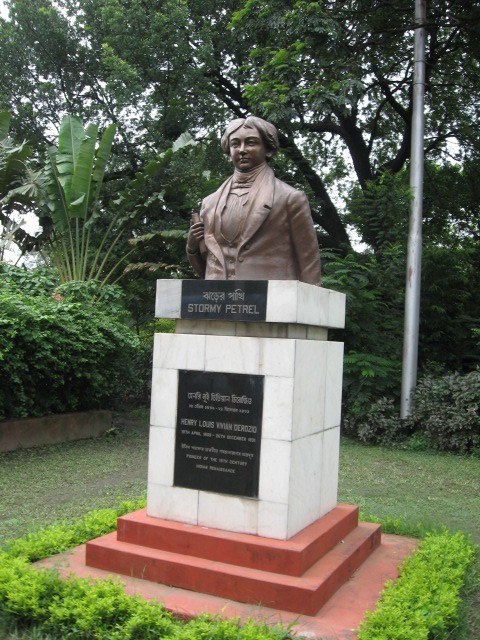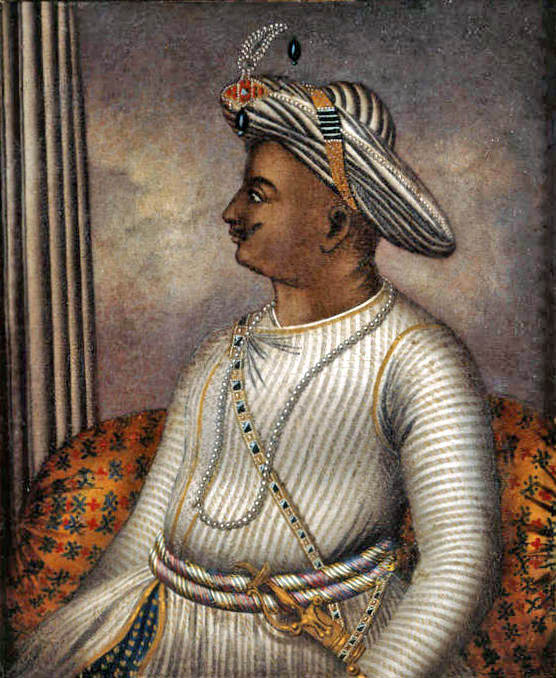|
Amelia Watts
Lady Amelia Jenkinson (née Watts; December 1750 – 12 July 1770) was an Anglo-Indian woman. She was the first wife of Charles Jenkinson, 1st Earl of Liverpool. She died soon after giving birth to Robert Jenkinson, who grew up to become British prime minister. An early portrait by the painter Joshua Reynolds is thought to have been of her. Biography Amelia Watts was born in December 1750, in Calcutta, India to William Watts and his wife Begum Johnson. She was of mixed Portuguese and Indian descent through her maternal grandmother. On 9 February 1769 she married Sir Charles Jenkinson. She gave birth to a son, named Robert The name Robert is an ancient Germanic given name, from Proto-Germanic "fame" and "bright" (''Hrōþiberhtaz''). Compare Old Dutch ''Robrecht'' and Old High German ''Hrodebert'' (a compound of ''Hrōþ, Hruod'' () "fame, glory, honour, prais ..., on 7 June 1770. She died on 12 July 1770 due to complications from childbirth. She is buried at the ... [...More Info...] [...Related Items...] OR: [Wikipedia] [Google] [Baidu] |
Church Of St Mary, Hawkesbury
The Church of St Mary in Hawkesbury, South Gloucestershire, England, was built in the 12th century. It is a Grade I listed building. History The church was built in the 12th century. The site was used for an earlier Saxon church, from which some of the stine was incorporated into the current building. A priest at Hawkesbury in the 11th century was Wulfstan. Parts of the Early English style building from the 13th century remain but the majority was built in the Perpendicular style of the 14th and 15th centuries. The tower was added in the 15th century. It underwent a Victorian restoration by W Wood Bethell between 1882 and 1885. The parish is within the Badminton benefice which is part of the Diocese of Gloucester. Architecture The church is built of Cotswold stone. It consists of a four- bay nave with clerestory, chancel, south aisle and chapel and has both north and south porches. The six-stage west tower is supported by diagonal buttresses, and includes a bell dating ... [...More Info...] [...Related Items...] OR: [Wikipedia] [Google] [Baidu] |
Luso-Indian
Luso-Indians, or Portuguese-Indians, are people who have mixed Indian and Portuguese ancestry; the term also refers to people of Portuguese descent born or living or originating in former Portuguese Indian colonies, the most important of which were Goa and Damaon of the Konkan region, along the Western coast of the present-day Republic of India. Luso-Indians are one subgroup of Luso-Asians, which includes other Eurasian creole peoples. Their diaspora can be found around the world, particularly in the Anglosphere and the Lusosphere, including constiuents of the former Portuguese East Indies such as Macao. Pockets of Luso-Indians used to live in the parts of India now known as Anjediva, Velha Goa, Damaon, Dio district, St Mary's islands of Mangalore, Bombay (Mumbai), Korlai Fort ( Chaul), Vasai (Bassein), Silvassa, Cape Comorin & Fort Cochin. There are also a number of Koli Christians, Christian Brahmins, Christian Cxatrias & so on with Portuguese surnames but who d ... [...More Info...] [...Related Items...] OR: [Wikipedia] [Google] [Baidu] |
Parents Of Prime Ministers Of Great Britain
A parent is either the progenitor of a child or, in humans, it can refer to a caregiver or legal guardian, generally called an adoptive parent or step-parent. Parents who are progenitors are first-degree relatives and have 50% genetic meet. A female can also become a parent through surrogacy. Some parents may be adoptive parents, who nurture and raise an offspring, but are not related to the child. Orphans without adoptive parents can be raised by their grandparents or other family members. A parent can also be elaborated as an ancestor removed one generation. With recent medical advances, it is possible to have more than two biological parents. Examples of third biological parents include instances involving surrogacy or a third person who has provided DNA samples during an assisted reproductive procedure that has altered the recipients' genetic material. The most common types of parents are mothers, fathers, step-parents, and grandparents. A mother is "a woman in relation to ... [...More Info...] [...Related Items...] OR: [Wikipedia] [Google] [Baidu] |
18th-century English Women
The 18th century lasted from 1 January 1701 (represented by the Roman numerals MDCCI) to 31 December 1800 (MDCCC). During the 18th century, elements of Enlightenment thinking culminated in the Atlantic Revolutions. Revolutions began to challenge the legitimacy of monarchical and aristocratic power structures. The Industrial Revolution began mid-century, leading to radical changes in human society and the environment. The European colonization of the Americas and other parts of the world intensified and associated mass migrations of people grew in size as part of the Age of Sail. During the century, slave trading expanded across the shores of the Atlantic Ocean, while declining in Russia and China. Western historians have occasionally defined the 18th century otherwise for the purposes of their work. For example, the "short" 18th century may be defined as 1715–1789, denoting the period of time between the death of Louis XIV of France and the start of the French Revoluti ... [...More Info...] [...Related Items...] OR: [Wikipedia] [Google] [Baidu] |
English People Of Indian Descent
English usually refers to: * English language * English people English may also refer to: Culture, language and peoples * ''English'', an adjective for something of, from, or related to England * ''English'', an Amish term for non-Amish, regardless of ethnicity * English studies, the study of English language and literature Media * ''English'' (2013 film), a Malayalam-language film * ''English'' (novel), a Chinese book by Wang Gang ** ''English'' (2018 film), a Chinese adaptation * ''The English'' (TV series), a 2022 Western-genre miniseries * ''English'' (play), a 2022 play by Sanaz Toossi People and fictional characters * English (surname), a list of people and fictional characters * English Fisher (1928–2011), American boxing coach * English Gardner (born 1992), American track and field sprinter * English McConnell (1882–1928), Irish footballer * Aiden English, a ring name of Matthew Rehwoldt (born 1987), American former professional wrestler ... [...More Info...] [...Related Items...] OR: [Wikipedia] [Google] [Baidu] |
British People In Colonial India
British may refer to: Peoples, culture, and language * British people, nationals or natives of the United Kingdom, British Overseas Territories and Crown Dependencies. * British national identity, the characteristics of British people and culture * British English, the English language as spoken and written in United Kingdom of Great Britain and Northern Ireland and, more broadly, throughout the British Isles * Celtic Britons, an ancient ethno-linguistic group * Brittonic languages, a branch of the Insular Celtic language family (formerly called British) ** Common Brittonic, an ancient language Other uses *People or things associated with: ** Great Britain, an island ** British Isles, an island group ** United Kingdom, a sovereign state ** British Empire, a historical global colonial empire ** Kingdom of Great Britain (1707–1800) ** United Kingdom of Great Britain and Ireland (1801–1922) * British Raj, colonial India under the British Empire * British Hong Kong, colonial ... [...More Info...] [...Related Items...] OR: [Wikipedia] [Google] [Baidu] |
People From Kolkata
The term "the people" refers to the public or common mass of people of a polity. As such it is a concept of human rights law, international law as well as constitutional law, particularly used for claims of popular sovereignty. In contrast, a people is any plurality of persons considered as a whole. Used in politics and law, the term "a people" refers to the collective or community of an ethnic group or nation. Concepts Legal Chapter One, Article One of the Charter of the United Nations states that "peoples" have the right to self-determination. Though the mere status as peoples and the right to self-determination, as for example in the case of Indigenous peoples (''peoples'', as in all groups of indigenous people, not merely all indigenous persons as in ''indigenous people''), does not automatically provide for independent sovereignty and therefore secession. Indeed, judge Ivor Jennings identified the inherent problems in the right of "peoples" to self-determination, as i ... [...More Info...] [...Related Items...] OR: [Wikipedia] [Google] [Baidu] |
1770 Deaths
Events January– March * January 1 – The foundation of Fort George, Bombay is laid by Colonel Keating, principal engineer, on the site of the former Dongri Fort. * February 1 – Thomas Jefferson's home at Shadwell, Virginia is destroyed by fire, along with most of his books. * February 14 – Scottish explorer James Bruce arrives at Gondar, capital of Abyssinia (modern-day Ethiopia) and is received by the Emperor Tekle Haymanot II and Ras Mikael Sehul. * February 22 – Christopher Seider, an 11-year-old boy in Boston in the British Province of Massachusetts Bay, is shot and killed by a colonial official, Ebenezer Richardson. The funeral sets off anti-British protests that lead to the massacre days later. * March 5 – Boston Massacre: Eleven American men are shot (five fatally) by British troops, in an event that helps start the American Revolutionary War five years later. * March 21 – King Prithvi Narayan Shah shifts to th ... [...More Info...] [...Related Items...] OR: [Wikipedia] [Google] [Baidu] |
1750 Births
Various sources, including the Intergovernmental Panel on Climate Change, use the year 1750 as a baseline year for the end of the pre-industrial era. 1750 is commemorated as the year that started the Industrial Revolution, although the underpinnings of the Industrial Revolution could have started earlier. Events January–March * January 13 – The Treaty of Madrid between Spain and Portugal authorizes a larger Brazil than had the Treaty of Tordesillas of 1494, which originally established the boundaries of the Portuguese and Spanish territories in South America. * January 24 – A fire in Istanbul destroys 10,000 homes. * February 15 – After Spain and Portugal agree that the Uruguay River will be the boundary line between the two kingdoms' territory in South America, the Spanish Governor orders the Jesuits to vacate seven Indian missions along the river (San Angel, San Nicolas, San Luis, San Lorenzo, San Miguel, San Juan and San Borja). * March 5 &nd ... [...More Info...] [...Related Items...] OR: [Wikipedia] [Google] [Baidu] |
Joshua Reynolds
Sir Joshua Reynolds (16 July 1723 – 23 February 1792) was an English painter who specialised in portraits. The art critic John Russell (art critic), John Russell called him one of the major European painters of the 18th century, while Lucy Peltz says he was "the leading portrait artist of the 18th-century and arguably one of the greatest artists in the history of art." He promoted the Grand manner, "Grand Style" in painting, which depended on idealisation of the imperfect. He was a founder and first president of the Royal Academy of Arts and was Knight Bachelor, knighted by George III in 1769. He has been referred to as the 'master who revolutionised British Art.' Reynolds had a famously prolific studio that produced over 2,000 paintings during his lifetime. Ellis Waterhouse, EK Waterhouse estimated those works the painter did ‘think worthy’ at ‘hardly less than a hundred paintings which one would like to take into consideration, either for their success, their original ... [...More Info...] [...Related Items...] OR: [Wikipedia] [Google] [Baidu] |



